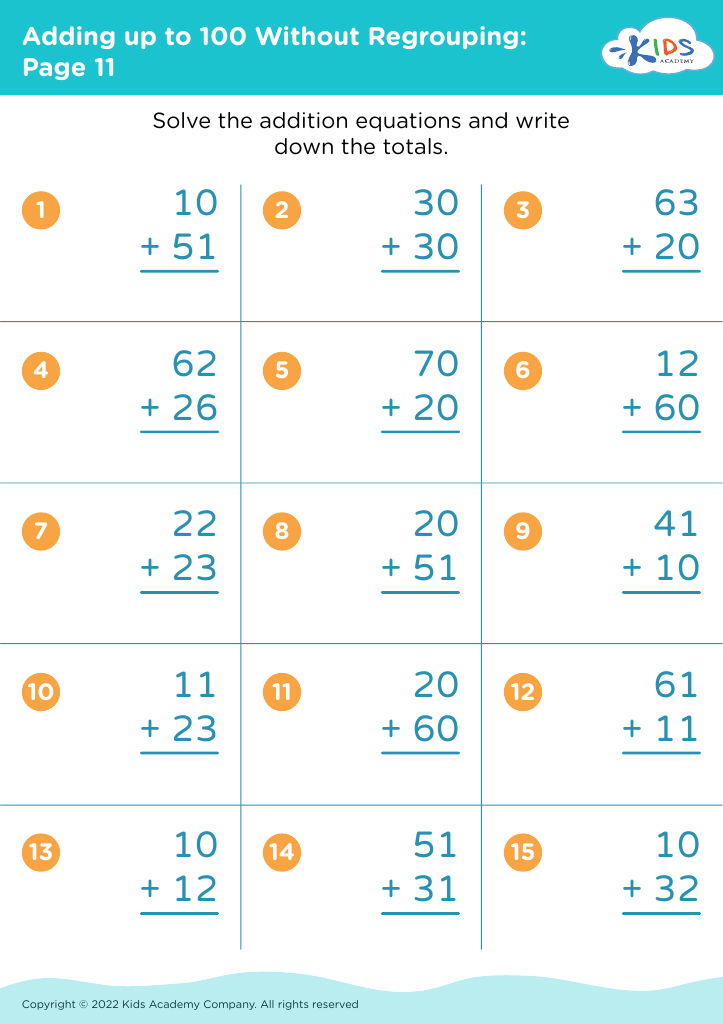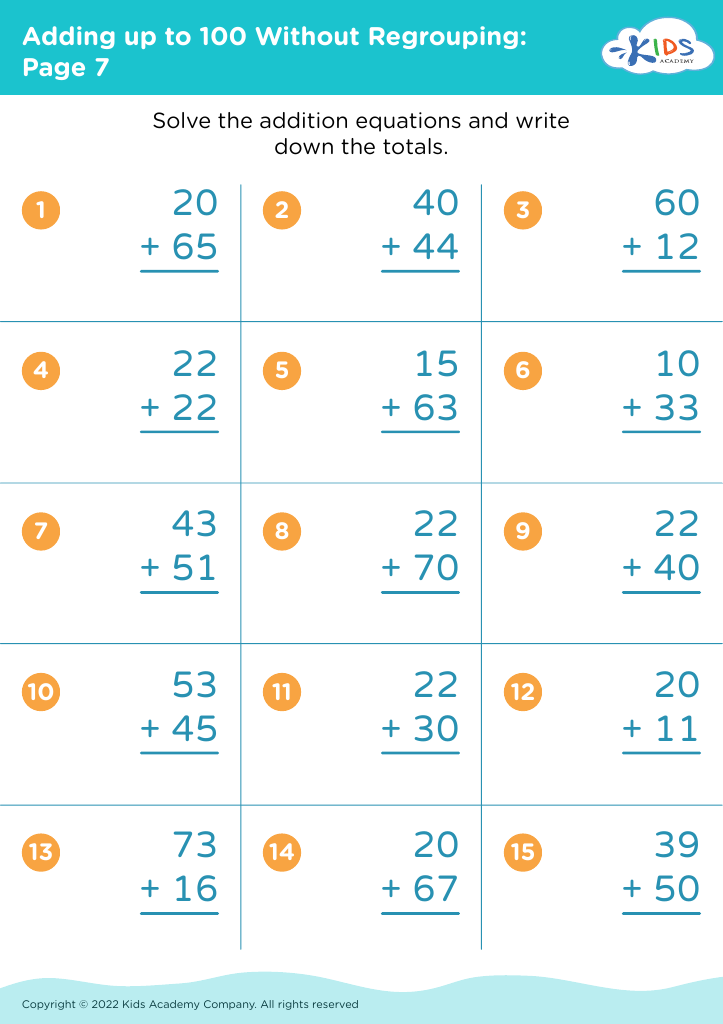Vocabulary enhancement Adding up to 100 Worksheets for Ages 6-8
3 filtered results
-
From - To
Unlock the power of vocabulary enhancement for young learners with our curated collection of 100 engaging worksheets designed for ages 6-8. These interactive activities help children expand their language skills while exploring mathematical concepts related to adding up to 100. Each worksheet is designed to reinforce key vocabulary, enabling students to not only grasp numbers and addition but also gain confidence in using the language of math. Perfect for classroom use or at-home learning, our vocabulary enhancement worksheets provide a fun and educational way to support your child’s development while making learning enjoyable and effective. Start enhancing your child’s vocabulary today!
Children aged 6-8 are in a critical stage of language development. Vocabulary enhancement is essential for several reasons. Firstly, a rich vocabulary supports better reading comprehension. When children understand more words, they can grasp the context of stories, leading to improved literacy skills. This ability not only helps with academic achievements but also fosters a lifelong love and appreciation for reading.
Secondly, effective communication is crucial for social interactions. When children can express their thoughts and feelings clearly, they build confidence and form stronger relationships with peers and adults. This social aspect is vital for emotional development and teamwork skills.
Additionally, enhanced vocabulary contributes to cognitive development. Engaging with new words stimulates critical thinking, as children learn to categorize, analyze, and use language in various contexts. Exposure to diverse vocabulary also promotes creativity, as children explore different ways to express ideas or describe the world around them.
Lastly, vocabulary enhancement lays a strong foundation for future learning. A broad vocabulary not only prepares students for more complex texts in later grades but also contributes to their overall academic success across subjects. Therefore, parents and teachers should prioritize vocabulary development to equip children with essential tools for effective communication, learning, and social interaction.







%20(1).jpg)










